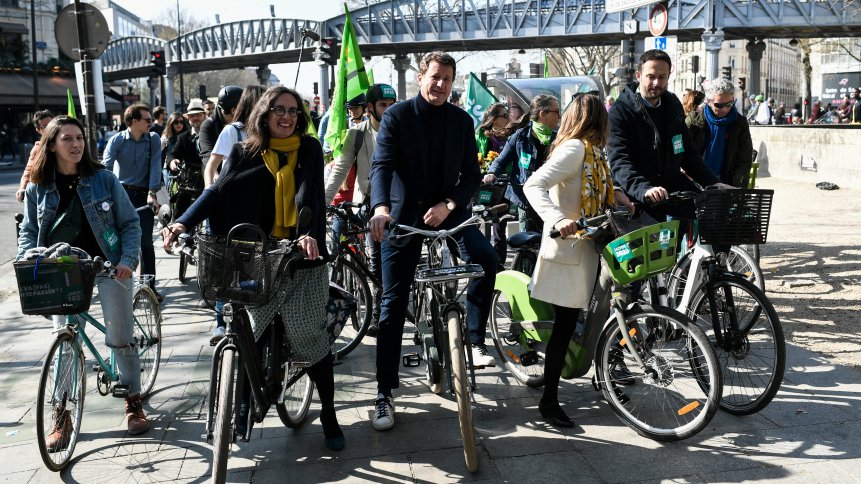How Eurobike, German railways partnered to promote sustainable mobility

- Deutsche Bahn Connect will provide a fleet of more than 2,000 rental bikes in conjuction with the Eurobike trade show this year
- To facilitate the sustainable mobility approach, there will be a network of bike lanes and plentiful, securely-guarded bike parking spaces especially for Eurobike
Eurobike, the industry’s largest annual bike show, this year will be held for the first time in Frankfurt, right in the heart of Germany after years of being held in Friedrichshafen. Along with the change in location, Eurobike 2022 will focus on urban mobility centered around bikes, whereby all routes to the trade show will feature smart and sustainable transportation.
According to various reports, Eurobike has announced a new partnership with Deutsche Bahn Connect, a subsidiary of the German railways, enabling attendees to ride, by bike or by train, to and from the Frankfurt-based show that will be held in July this year. In addition, visitors will be given the option to arrive by train or on a rental bike, using the specially-allocated Eurobike lanes.
“With the move from Friedrichshafen to the metropolis Frankfurt am Main Eurobike aims to become the driving force behind the transformation of mobility,” Eurobike show manager and fairnamic’s MD Stefan Reisinger said.
For Reisinger, the combination of content and conceptual design embedded in the city, the excellent infrastructure on-site, not to mention the best national and international accessibility underlines the Eurobike claim as a leading global trade show — and the most important live platform of the bike and sustainable urban mobility industry.
As part of the cooperation between Eurobike and the German Railways, visitors will receive voucher codes enabling access to more than 2,000 DB Connect “Call a Bike” rental bikes. Those will be available at rental stations next to the city’s main station and additional pop-up stations. These will be located in the immediate vicinity linked to local and long-distance traffic to the trade show grounds.
Additionally, trade show fans can move freely through the city – in an environmentally friendly way, Reisinger added. To top it off, Deutsche Bahn also provides a discounted ticket quota for long-distance trips to attend the trade show.
To be fair, cycling has been ubiquitous in European communities for decades. Over the years, electric bikes started garnering more interest and by 2021, the Europe e-bike market was valued at US$6327.7 million and is expected to reach US$13,636 million by the end of 2030. Attributing to the growth is the demand for EVs across the globe.
“Moreover, higher running and maintenance cost of fuel vehicles leads to shift in preference for electric bikes in daily commute, which, in turn, propels the Europe e-bike market growth,” Coherent Market Insights indicated. While e-bikes are not something foreign or new, the pandemic has definitely given rise to an e-bike boom, and in just the last two years alone, sales of e-bikes all over the world soared to record highs.
Even soaring gasoline prices amidst ongoing geopolitical tensions stimulated a hike in the sales of e-bikes. In the US particularly, where the public has been slower to catch on to e-bikes, new electric bicycle companies have reached over a hundred thousand sales in just two years, according to Electrek. To top it off, the more established electric bicycle companies in the US are raking in hundreds of millions of dollars in funding, as investors awaken to the huge surge in e-bike adoption.
The US Light Electric Vehicle Association data suggested that the country imported nearly 800,000 electric bikes in 2021, a huge increase from the almost 450,000 e-bikes imported in 2020. In 2020, sales of e-bikes actually jumped past sales of electric cars in the US. With that, experts reckon sales to track towards US$1 million this year while the global market is forecast to be worth US$40 billion within the same time.
Overall, Deloitte projected that between 2020 and 2023 alone, 130 million e-bikes could be sold worldwide. The rosy predictions across board simply proves that it is e-bikes — not cars — that appears to be the world’s best-selling electric vehicle. In fact, In Europe, e-bikes are even more common and are actually projected to outsell cars — not just EVs but all cars — by the middle of this decade.










